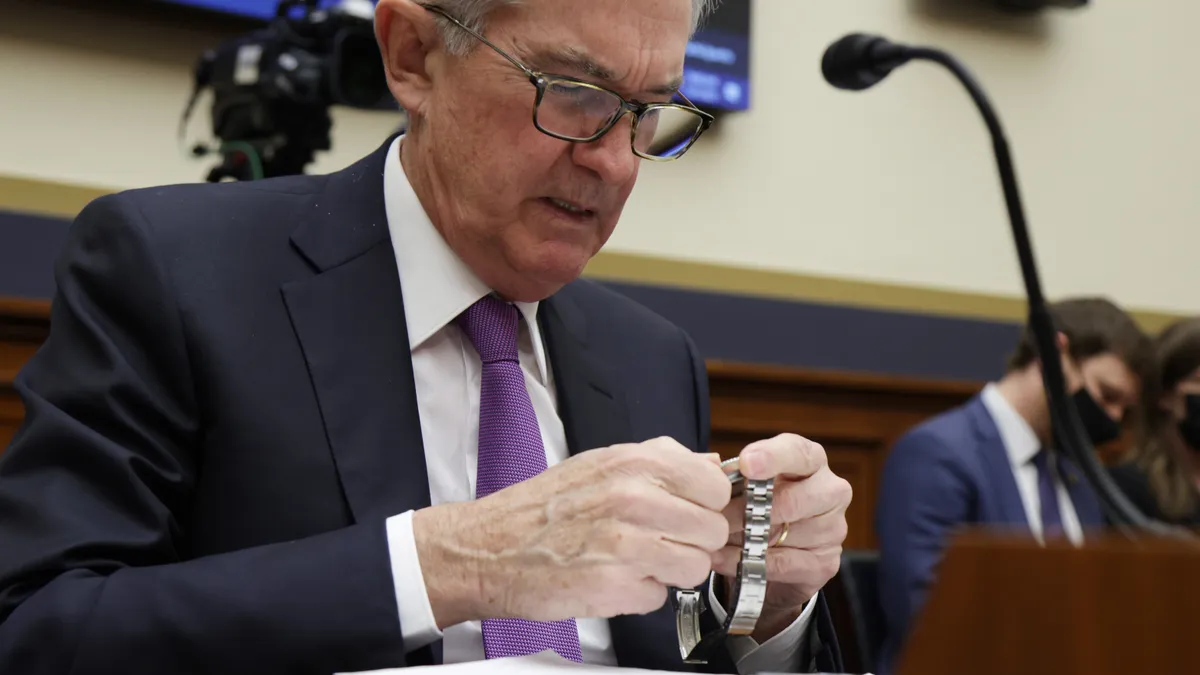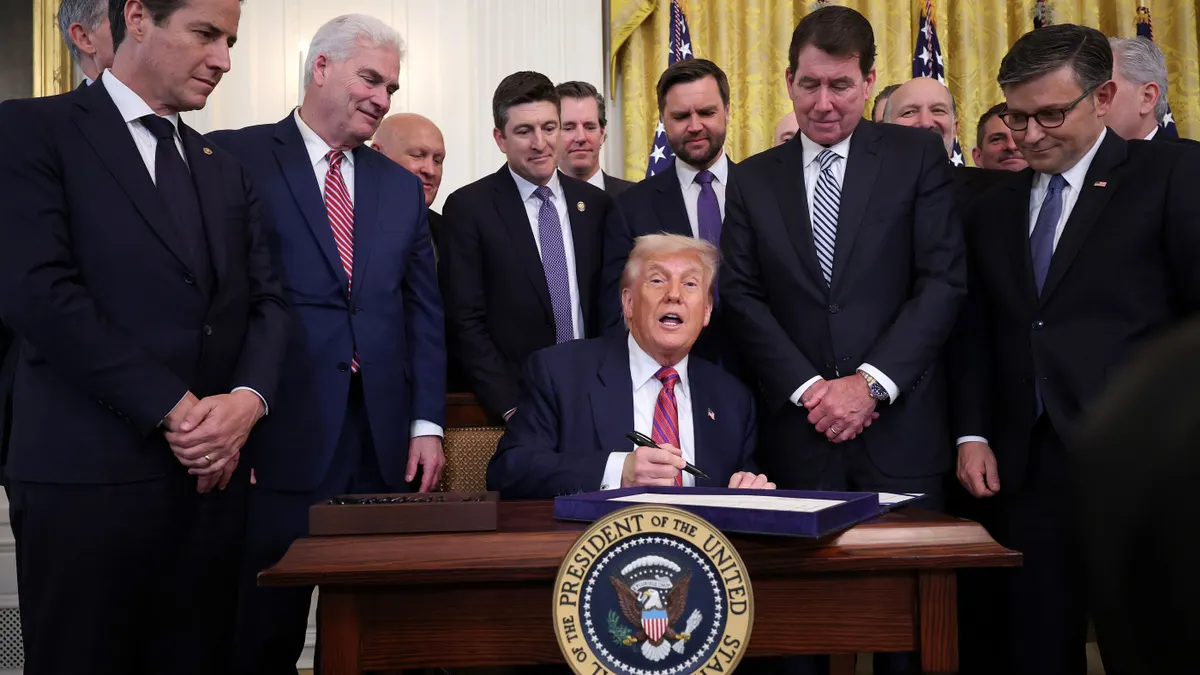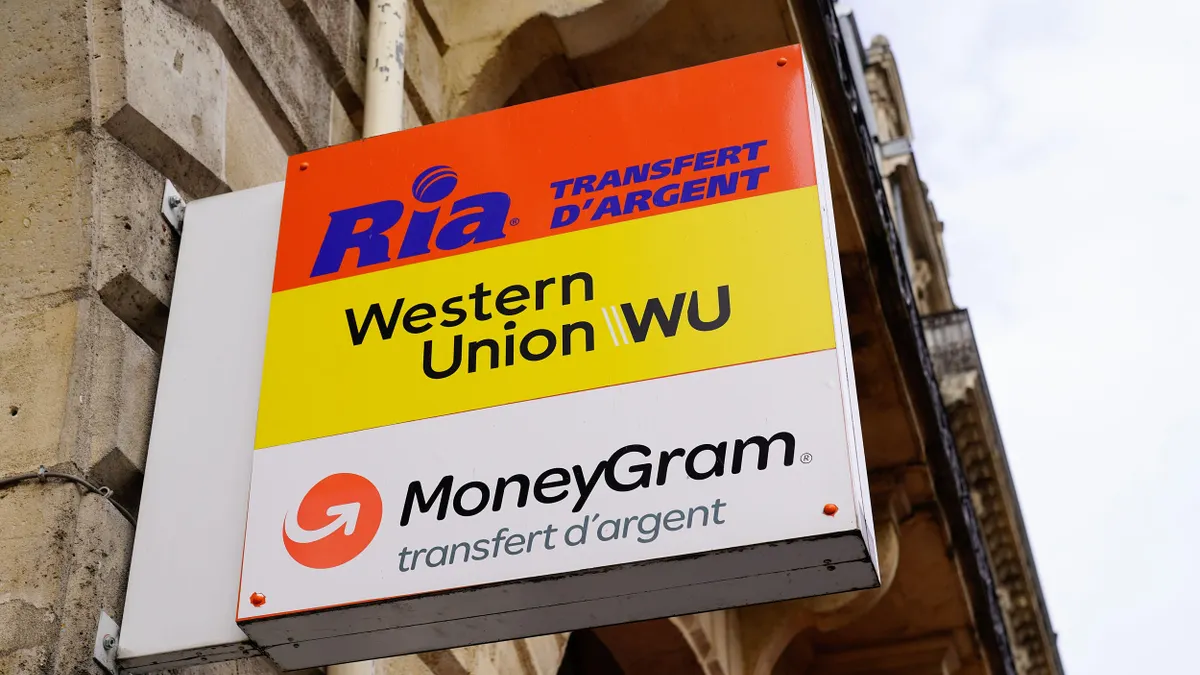A merchant interest group took the Federal Reserve to task Tuesday for not pressing ahead with a debit routing proposal it made last year and urged a review of other rules governing fees that card networks can charge in processing debit transactions.
The Merchants Payments Coalition struck an impatient tone in its press release Tuesday, putting the Fed on notice that merchants and retailers are absorbing what it considers unfair fees while the government deliberates its proposal to bolster requirements calling for competing card networks in routing debit card transactions.
"We’re quickly coming up on a year since the Fed acknowledged that big banks and the big payment networks are standing in the way of competition over online debit card processing that could save retailers and their customers billions of dollars," National Association of Convenience Stores General Counsel Doug Kantor said in the release. "It’s time for the Fed to act." Kantor is also an MPC executive committee member.
The Merchants Payments Coalition includes retailers, restaurants, gas stations and various types of stores that want to seek a more "transparent and competitive" U.S. payments system to reduce their costs of card processing.
The interest group timed the release for a day when Fed Chairman Powell came before the Senate Banking Committee, which is reviewing President Joe Biden’s nomination of Powell to a second term leading the central bank. Still, Powell didn’t face any questions Tuesday on the debit routing issue during a hearing that focused more on inflationary pressures and interest rate considerations.
In response to retailer and merchant demands for debit card fees, the Federal Reserve Board in May proposed clarifying rules on the fees. Those fees are paid to the big card network companies Visa and Mastercard, bank card issuers and other transaction processors.
The board proposed clarifying that merchants must have a choice between at least two networks for routing debit transactions. Merchants have argued they don't have choices despite regulations requiring them and the lack of competition keeps debit interchange, or "swipe," fees, higher than they otherwise would be.
The central bank said in May that the proposal was prompted by evidence that all too often merchants have only one network option — especially for online purchases, also known as "card-not present" transactions. The issue has taken on more importance because of increased online purchases during the COVID-19 pandemic.
The Fed got an earful on the proposal when interest groups on both sides of the debate filed comments during a comment period that ended last August. Banks have generally opposed changes and increased debit fee regulation. Since then, interested parties have been waiting for the Fed to make a decision on the proposal.
Powell didn’t discuss the fee issue in his testimony on Tuesday. When asked about the timing for the proposal's review, a spokesman for the Federal Reserve, Eric Kollig, declined to comment.
The MPC on Tuesday also prodded the Fed to reconsider lowering the cost basis for the national debit fee cap, which was unchanged by the Fed in May. The group argued that the Fed has established that the "banks’ average cost of processing debit transactions – both in-store and online – is now half what it was when debit swipe fee regulations were established."
The restrictions on debit card fees were imposed in provisions of the 2010 Dodd-Frank Wall Street Reform and Consumer Protection Act after they were championed by Sen. Dick Durbin, a Democrat from Illinois. The regulations are now commonly referred to as the Durbin Amendment. He has continued to press for interchange fee regulations that would reduce the cost burden for merchants and retailers.
"Congress said more than a decade ago that these fees must be kept proportional to banks’ costs, but the Fed has failed to do so," Kantor said in the release. "The Fed needs to follow the intent of Congress."




















